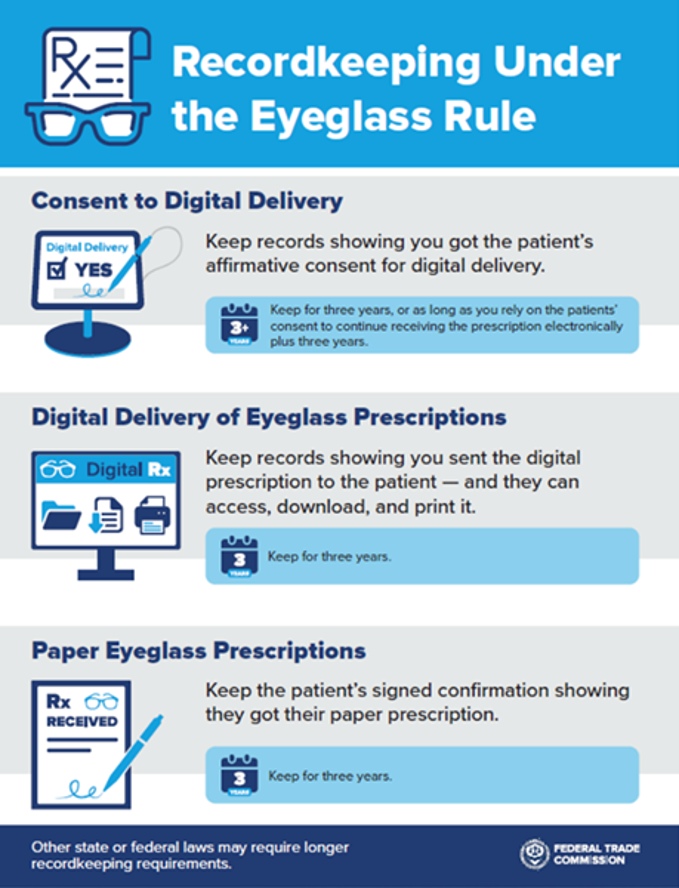After a careful review process inviting feedback from consumers and industry members, the FTC has announced final updates to its Ophthalmic Practice Rules, also known as the Eyeglass Rule. The primary focus of the revised Rule is to increase compliance with the longstanding requirement that ophthalmologists and optometrists provide patients with a free copy of their prescription immediately following a refractive eye exam.
The FTC’s Eyeglass Rule encourages consumer choice and promotes competition in the eyeglass marketplace by requiring that immediately after any eye exam that includes a refraction, prescribers must automatically provide patients with a copy of their eyeglass prescription regardless of whether the patient asks for it. That’s been the law since 1978, but consumers have reported that some prescribers haven’t always complied with that key provision. The FTC sent warning letters to 28 practitioners in 2020 and another 37 practitioners in 2023, raising concerns about Rule compliance. In December 2022, after considering more than 800 comments on the public record, the FTC proposed updating the Rule to address – among other things – that ongoing issue. That was one of the topics on the table at a May 2023 public workshop on proposed revisions to the Rule.

You’ll want to read the revised Rule for details and consult the updated publication Complying with the Eyeglass Rule, but the just-announced changes relate to the confirmation of prescription release, proof of insurance coverage as payment, and the definition of “refractive eye examination.” One revision that consumers will notice is that ophthalmologists and optometrists who have a financial interest in selling prescription eyewear now must ask their patients to sign a statement confirming they received their prescription and must keep a record of that confirmation for at least three years. If the requirement sounds familiar, that’s because it closely tracks what prescribers already must do for contact lens prescriptions. The revised Rule gives practitioners an additional incentive to ensure patients get their eyeglass prescriptions and the simple recordkeeping step has the added benefit of making it easier for practitioners to establish that they comply with the Rule.
Complying with the Eyeglass Rule discusses the revisions in depth, using a straightforward Q&A format. The updated Buying Prescription Glasses or Contact Lenses: Your Rights discusses the changes from the patient’s perspective.
